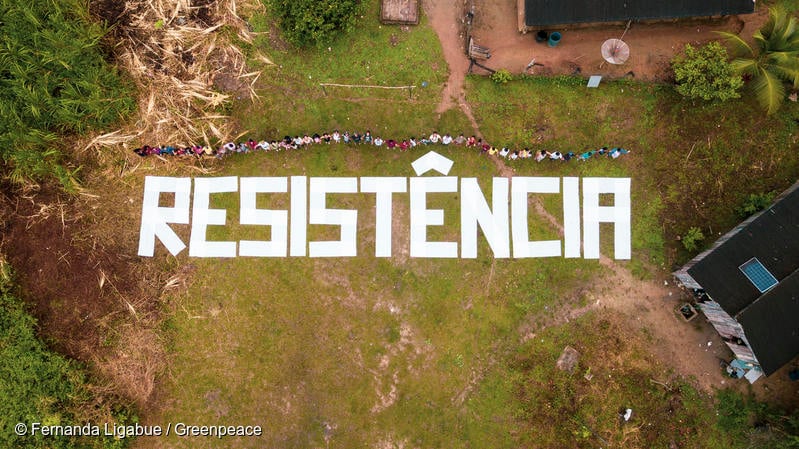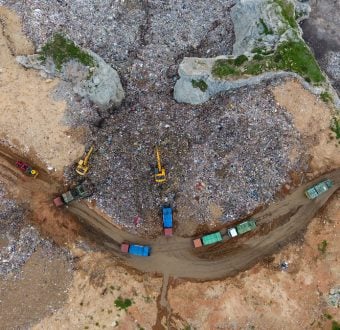“We are here together defending the protection of our territories. This struggle is not only of Indigenous Peoples, but of all humanity, because it is a struggle for the protection of the planet,” states the Piaraçu Manifesto, an accord that Indigenous Leaders signed at the recent summit held in the Capoto-Jarina Indigenous Territory, in Mato Grosso State, Brazil.
The meeting was called by chief Raoni Metuktire, of the Kayapó people, who was attacked by Bolsonaro in a speech at the United Nations (UN) in September 2019, despite Metuktire’s lifelong work for the defense of the Amazon and the rights of Indigenous Peoples.
This manifesto demonstrates the layers of importance of defending the forest and all the people who live there. According to more than 450 leaders (from at least 45 Indigenous Nations) who participated in the summit between January 14th and 17th, the planet has never been more threatened. The debates at the summit focused on the risks represented by the anti-indigenous, anti-environmental, and genocidal policies imposed by the government of Brazilian President Jair Bolsonaro.
Confronting the Constitution
Not only does the Bolsonaro government totally disregard its obligations under the Brazilian Constitution to recognize and honor the integrity of Indigenous Territories, the administration intends to open Indigenous territories for mining, oil and gas, dam construction, and clearance of forest for more cattle pasture and cropland.
Shockingly, the government is preparing to introduce legislation that would take away veto power of Indigenous Peoples, who have the exclusive use of their territories under the Constitution
“We answered the call of Chief Raoni—understanding that from the start of the year, this was an urgent matter—that the movement must strengthen its foundation for this inevitable confrontation – the government’s drastic attacks,” said Sônia Guajajara, leader of the Association of Indigenous Peoples (APIB).
“This was our first action to combat and counter the government’s intention to allow miners and ranchers to exploit our lands, as well as to fight against those dismantling the policies and the rights of Indigenous Peoples. This meeting will be followed by many other actions like this, from now until the end of 2020.”
In the Piaraçu Manifesto, leaders who participated in the summit affirm they will not accept mining, mining, leasing, logging, illegal fishermen, or hydroelectric power on their lands.
“We stand against everything that destroys our forests and rivers,” signatories said in the statement.
The leadership of the south of Pará state, O-é Kaiapó, highlighted two aspects from the final document: “This meeting was of paramount importance because both our young people and our women played a large part in debates on education, health, territory, and the environment.”
Key alliances
Guajajara recognizes that the current political context demands the strengthening of alliances with riverside dwellers, quilombolas, and other traditional communities, as well as with the national afro-brazilian movement, students, women, and the LGBT community.
“Only by having unity in the fight we will be able to resist. The avalanche that is out there is huge,” she said.
This piece was written by Greenpeace Brazil and was translated from its original text in Portuguese.
Greenpeace stands alongside Indigenous Peoples and affirms that recognizes their territories and those of traditional communities is a way of ensuring their rights and ways of life. In addition, Indigenous Peoples’ lands protect and ensure the maintenance of the standing forest, which is essential to mitigating the worst impacts of the climate emergency and the biodiversity crisis.


